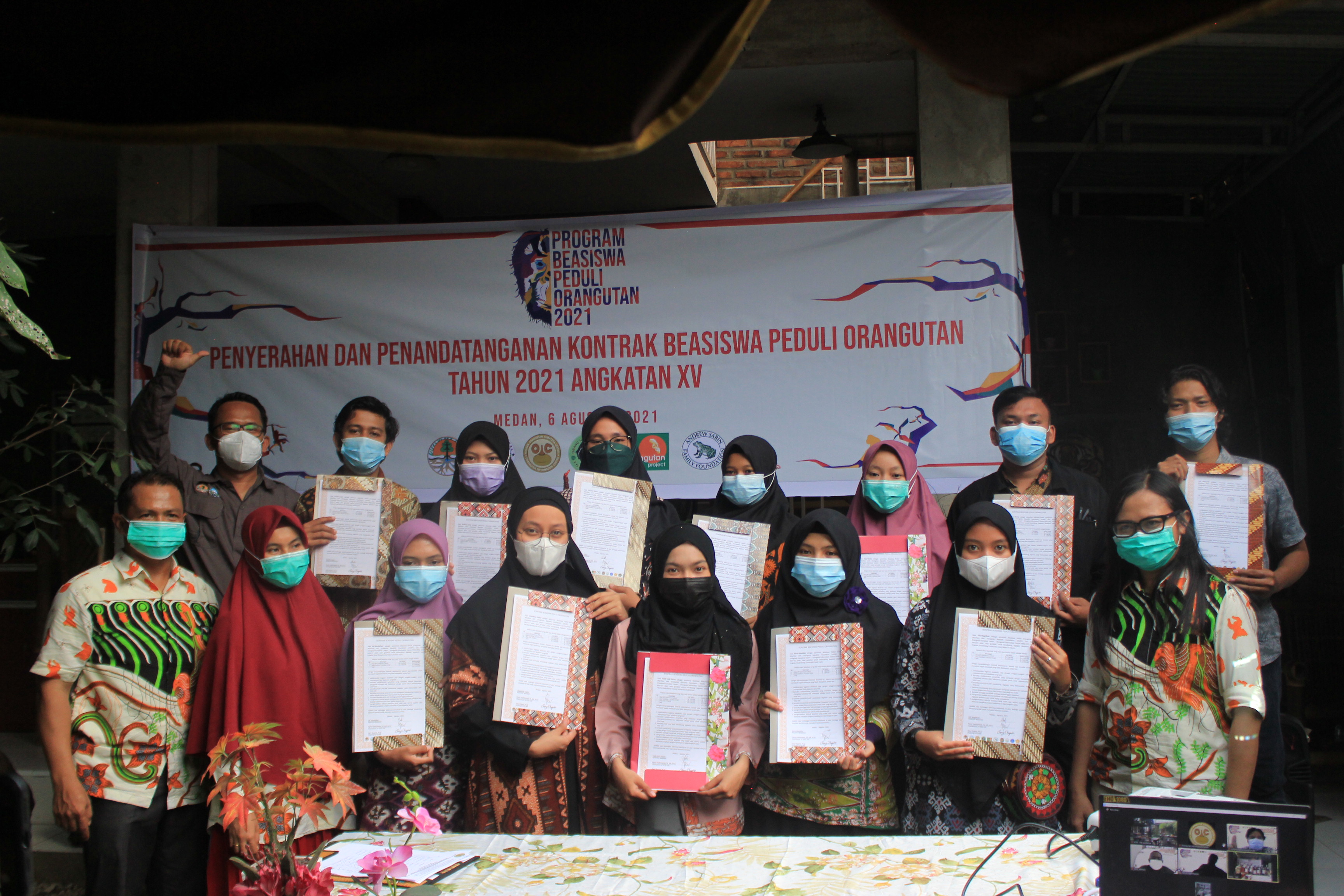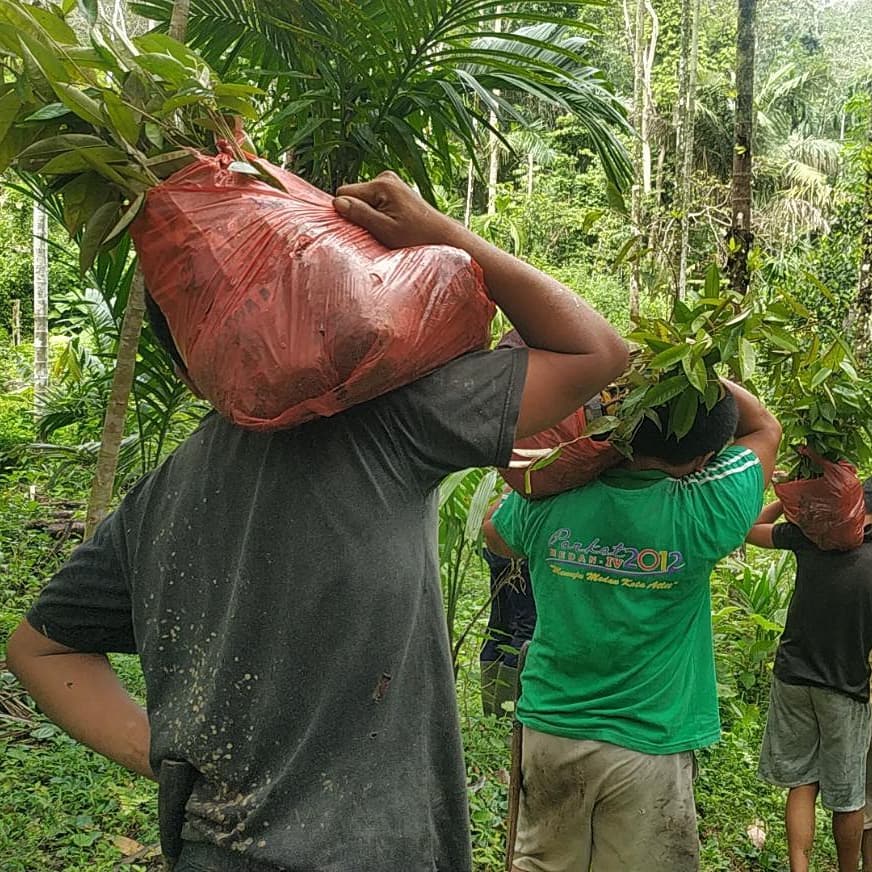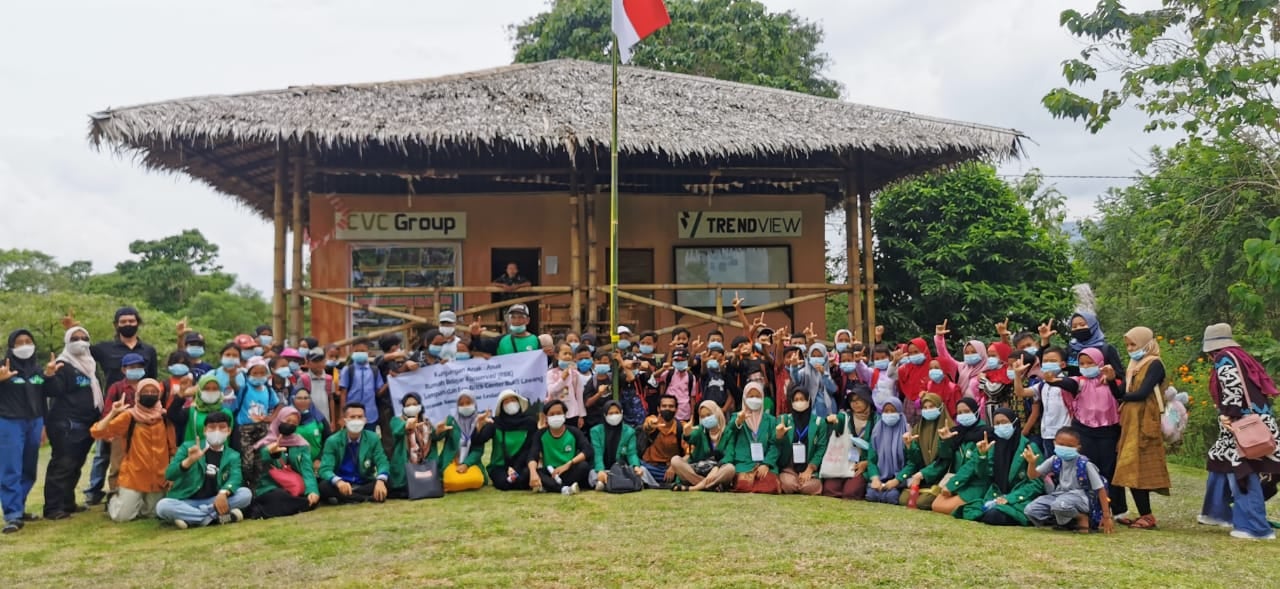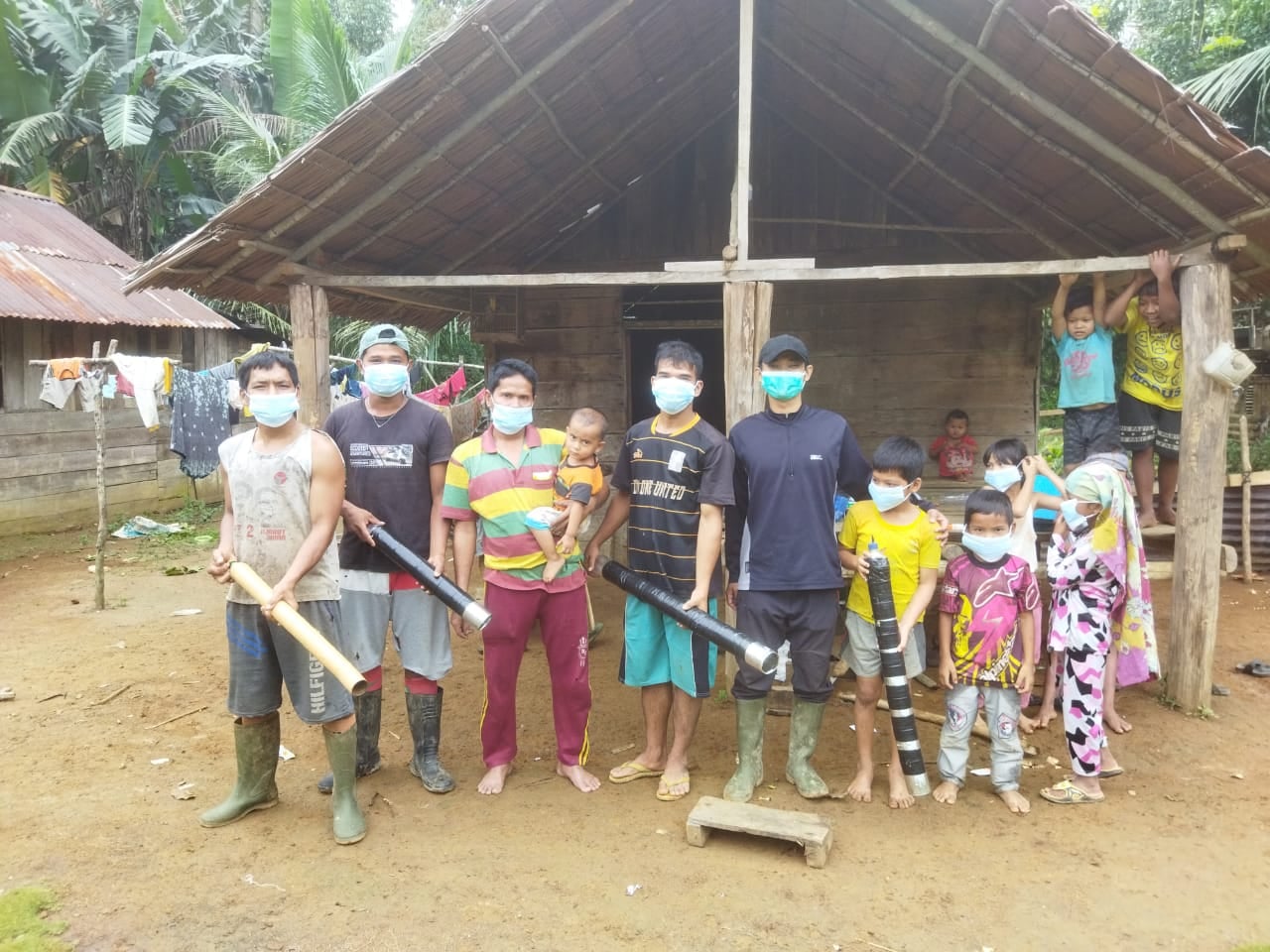While the Covid-19 Pandemic impacts all aspects of global society, particularly human health and the economy, conservation education programs funded by OURF continue to be implemented in Indonesia. All programs have been affected; however, modifications have been made to ensure that scholarships are being given and education programs delivered in the field in a safe manner.
Over the past two years, OCS partners have used video conferencing to facilitate the outreach, evaluation, and selection aspects of the program. All 24 scholarships were awarded this year to students in N. Sumatra, Aceh, West Kalimantan, Central Kalimantan, and East Kalimantan online and in-person (with masks and social distancing protocols).

Photographs from OIC, Yayasan Palung and Borneo Nature Foundation.
CECP activities conducted by YSHL have been modified as well due to the limitations of visiting the villages as well as some of the staff and partner organizations contracting Covid. OURF remains patient in adjusting the annual workplan and ensuring that Covid related measures stay in place during the current surge of the Delta variant.



Photographs from Yaysan Sumatra Hijau Lestari
Unfortunately, research fellowships have been postponed until the government of Indonesia allows for the return to such activities by foreign graduate students. Additionally, site visits by OURF administrators are still not possible at this writing but will commence again once international travel is permitted by the Indonesian government.
OURF understands that we are living in a world where viruses like the one that causes Covid-19 will require humanity to remain vigilant, continue to learn and adapt, and above all, stay humble to the power of these microscopic entities that are part of the natural ecology of our planet. Despite the uncertainty of their origin, these deadly and virulent viruses will continue to emerge from rainforest animal hosts and biological reservoirs that come into contact with human populations. Resources should be devoted towards research, monitoring, and disease mitigation strategies well before epidemics and pandemics become global disasters. Protecting forests and keeping their animal inhabitants contained within those forests rather than destroying ecologically intact communities for profit and development will also be key to preventing future pandemics. Finally, caging, stressing, and consuming wild animals should be minimized or eliminated to ensure viral shedding around humans does not occur.
